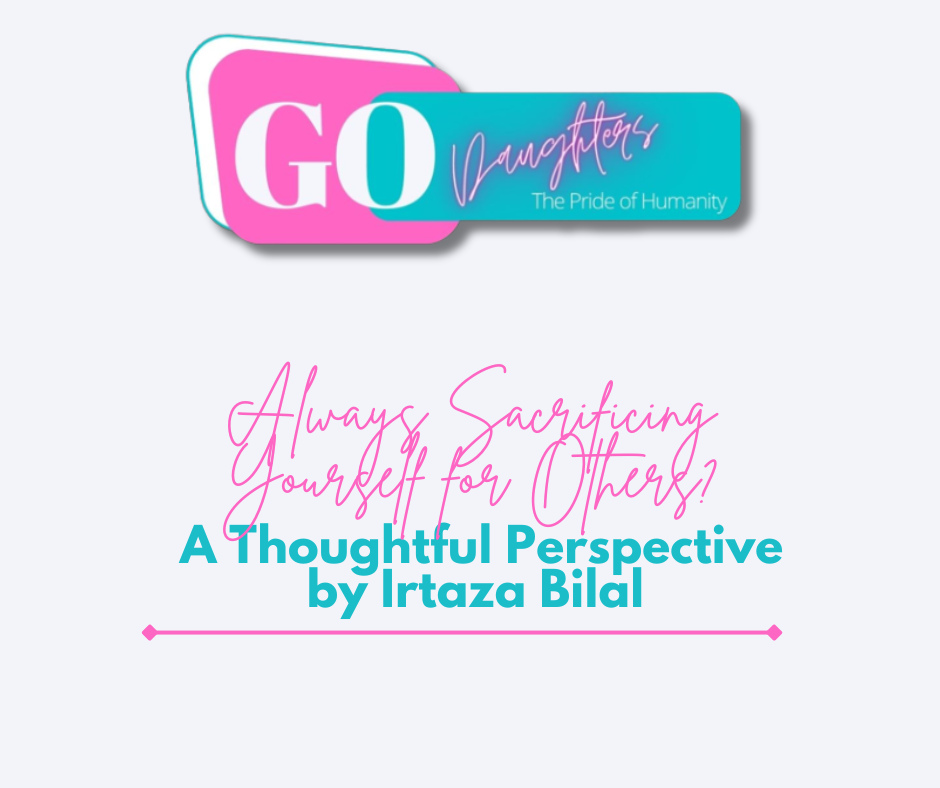
Always Sacrificing Yourself for Others? A Thoughtful Perspective by Irtaza Bilal
Hey there, fellow soul-searchers! Today, I want to dive into the deep waters of selflessness, empathy, and the age-old dilemma of always putting others first. Now, I don’t know about you, but I’ve often found myself caught in the crossfire of my own altruistic tendencies. So, let’s take a journey into the realm of sacrificing oneself for the sake of others, as viewed through the lens of Irtaza Bilal.
Picture this: You’re the go-to person for everyone’s problems, the superhero without the cape, and the eternal giver. Sounds noble, right? Well, it is, until you realize that you might be drowning in the sea of your own sacrifices.
On the surface, self-sacrifice seems like the epitome of virtue. After all, what’s more commendable than putting the needs of others before your own? It’s the stuff of legends and heartwarming movies. But here’s the catch – are we inadvertently sacrificing our own well-being in the process?
It’s a dance we often engage in without realizing it, stepping gracefully into the territory of burnout and emotional exhaustion. So, where do we draw the line? How much of ourselves should we sacrifice for the sake of others?
Imagine being a caregiver, a friend, or a family member always at the beck and call of those you care about. It’s a beautiful thing, until it’s not. Constantly putting others first can lead to neglecting your own needs, dreams, and aspirations. In the end, the well of self-sacrifice can run dry, leaving you parched and weary.
Perpetual self-sacrifice is the only path to virtue. Instead, he urges us to embrace a balanced approach – a symbiotic relationship where giving and receiving are in harmony. It’s like a dance, a give-and-take that ensures both parties are nourished and fulfilled.
Think about it this way: when you’re on an airplane, the safety instructions tell you to secure your own oxygen mask before helping others. Why? Because you can’t be of assistance to anyone if you’re suffocating. Similarly, Irtaza’s view prompts us to prioritize our own well-being so that we can be more effective in our altruistic endeavors.
Now, this isn’t a call to abandon the beautiful act of selflessness altogether. It’s a call to redefine it, to infuse it with self-awareness and balance. After all, the most sustainable acts of kindness come from a place of strength, not from a depleted well of resources.
So, my fellow adventurers in the realm of humanity, let’s take a cue and reconsider our approach to self-sacrifice. Let’s aim for a harmonious dance where the rhythm of giving and receiving creates a symphony of fulfillment and well-being.
In conclusion, the next time you find yourself on the brink of sacrificing yet another piece of yourself for the greater good, pause, reflect, and ask: Is this sustainable? Are my needs being met too? Because, my friend, you deserve to thrive just as much as the next person. It’s not about abandoning the art of selflessness; it’s about mastering the art of balance.




